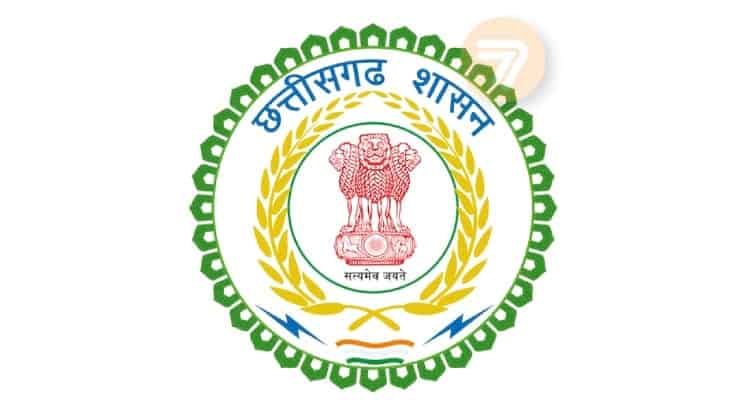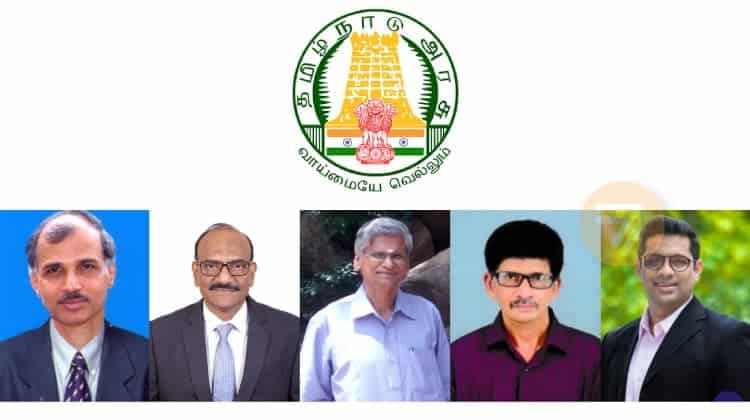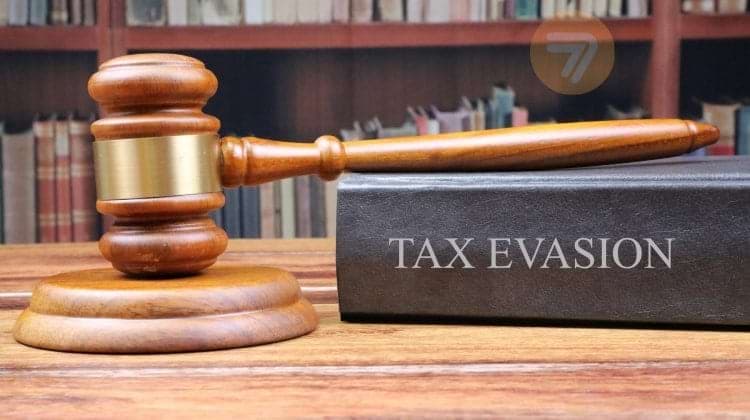India’s Online Gaming Industry Faces a Rough Journey with States
11 Jul 2023
The country’s three major online gaming industry bodies are actively fighting on many fronts for their cause for a safe and predictable environment when it comes to the States and UTs of the Union.
The All India Gaming Federation (AIGF), with members including MPL, Zupee, GamesKraft, and Paytm First Games, the E-Gaming Federation (EGF), representing the likes of Games24x7, Junglee Games, and Head Digital Works, as well as the Federation of Indian Fantasy Sports (FIFS), comprising Dream11, Fantasy Akhada, and many smaller fantasy sports platforms, are facing a rough journey ahead.
Madras HC Denied Interim Relief to Business from Tamil Nadu Ban
The Madras High Court (MHC) bench consisting of new Chief Justice Sanjay Vijaykumar Gangapurwala and Justice P. D. Audikesavalu has denied any interim relief to online gaming companies seeking a challenge to the constitutional validity of Tamil Nadu’s second ban on online games with real money.
According to the MHC, the petitioners’ arguments for an interim stay of the disputed Tamil Nadu Prohibition of Online Gambling and Regulation of Online Games Act, 2022, are identical to their arguments for a final quashing of the ban, and therefore the bench decided to rule on the matter in its finality.
According to the gaming businesses’ lawyers – Senior Counsel Mukul Rohatgi and Senior Counsel Abhishek Manu Singhvi, their clients have geo-blocked access to their platforms from the territory of Tamil Nadu and are suffering losses on a daily basis.
At the same time, the counsels pointed out that gaming companies and their officers are facing risks of criminal action initiated against them.
The bench’s resolution confirmed the earlier decision of the High Court’s first division bench, composed of then Acting Chief Justice T. Raja and Justice D. B. Chakravarthy, who refused an interim stay on the Act on the first hearing of the case on April 27.
The next hearing will be on July 13, when the petitioners from the gaming industry will be able to place their final arguments. The state will get the chance to reply on July 20 or at a later convenient date.
Media reports claim to have gained access through “multiple sources” to the text of “what appears to be” the affidavit that the TN cabinet is planning to present to the MHC. The document is focused on defending the state’s legal competence to implement the disputed online gaming ban.
Stalin Takes the Blame for TN Gaming Authority Still Not Running
While India is turning towards contemporary responsible gaming practices through the Central Government’s effort to regulate the sector via the latest amendments to the IT Rules and the new role to be assumed by Self-Regulatory Organizations (SROs), Tamil Nadu’s Chief Minister Muthuvel K. Stalin suddenly fell again into position to take the blame.
Online Gaming Industry vs States | TN Gaming Authority
The reason is that, despite staying in legal force, the holy grail of the state’s method to fight gambling problems – the online gaming ban, is still not functioning, and a new tragic loss of life linked to gambling debts was reported.
“The DMK government had said that it is going to form a five-member Tamil Nadu Online Gaming Authority including a retired officer of the rank of Chief Secretary, a retired police officer of not less than IG rank, and a top psychologist,” K. Annamalai, state president of the BJP Bharatiya Janata Party (BJP), said.
“But even after two months, no announcement has been made about it,” Annamalai pointed a finger. “Without thinking about the real solutions to the problems, this incompetent DMK government has been staging a drama to distract the people by making announcements to hide their failure. Another life has been lost due to the lack of measures to implement the Act.”
When TN Governor R.N. Ravi stalled his signature on the Prohibition Act, Stalin was given relief and, for some time, it was the Raj Bhavan who was taking all the blame for being a “stumbling block to the state’s development” and the reason for the state’s issues with gambling to remain unsolved.
Before that, Stalin and the currently ruling DMK party had become used to taking a lot of heat from the opposition for not having an active gaming ban in place, even though it was the opposition’s first gaming ban that failed legal scrutiny and got rejected by the MHC in August 2021.
Online Gaming Industry vs States | Industry Hopes for Reasonable Talk with States
Taking a proactive approach, AIGF, EGF, and FIFS have expressed their intent to initiate communication with the governments of several states, including Tamil Nadu, that are supportive of gaming prohibitions.
The homegrown gaming industry is concerned about certain States such as Odisha, Assam, and Telangana. They might disregard the new central rules. Which prescribe that SROs will determine what games are permissible real money online games and impose additional bans.
India’s gaming industry should “be able to go to the states and advocate that there is a new set of rules notified by the central government.” An anonymous source from the Union Ministry of Electronics and IT (MeitY) said.
“If there are some state governments that are not getting on board. The industry can flag it with the Centre. And the ministry will make the effort of raising it with the states thereafter,” the source added.
Fantasy Sports Get 24% Boost from IPL Season
In the meantime, the 2023 Indian Premier League season brought online fantasy sports companies ₹2,800 crores ($342 million) in revenues, a 24% boost compared to last year’s revenues of ₹2,250 crores ($275 million), according to a recent report by Redseer, an India-based business strategy advisory company.
The number of fantasy users rose to 6.1 crores. With 35% of new users trying fantasy gaming for the first time. The 16th IPL season brought an 11% increase in paying users. While the average revenue per user per match rose to ₹127. And the average revenue per user for the whole season grew to ₹458.
“The excitement of IPL also trickled into non-IPL sporting events during the season. Contributing to ~13% of the revenue.” Ujjwal Chaudhry, partner at Redseer, said.
Online Gaming Industry vs States | Chhattisgarh Issues Own Advisory against Gambling Adds
Raipur Police Senior Superintendent Prashant Agrawal recently issued an advisory to print and TV. As well as online media and advertising agencies. The advisory said to refrain from advertising gambling or betting-related products.
Although similar in intent to the Central Gov’t issued advisories against gambling ads. The Chhattisgarh police advisory is based on the severe penalties contained in the recently adopted Chhattisgarh Gambling (Prohibition) Act.
Chhattisgarh joined the group of States specifically prohibiting online gambling. As well as betting, and wagering. The prohibition started at the beginning of 2023. It started on the backdrop of more than 250 arrests linked to the ₹5,000 crore-worth Mahadev betting app scam.
Unlike the fresh Tamil Nadu legislation which specifically names rummy and poker as banned “online games of chance.” Chhattisgarh’s Act is not directed at games typically recognized as games of skill.
Bihar Asks Union Gov’t to Ban 100 Gambling, Gaming, and Loan Apps
Acting alone to regulate the internet is a meaningless exercise. According to Union Minister for IT Rajeev Chandrasekhar. The Bihar police Economic Offences Unit (EOU) has asked MeitY to ban over a hundred gambling/gaming and loan lending apps.
“The decision was taken after confirming that these apps attract Section 69 of the Information Technology (IT) Act as they contain materials which are prejudicial to the sovereignty and integrity of India,” Nayyar Hasnain Khan, EOU Additional Director General, said.
“Several complaints had been received of extortion and harassment from people who had borrowed very small amounts through such loan lending apps,” he clarified.
In February, the MeitY issued blocking orders on 232 betting and loan lending apps. On the grounds of the same Section 69 of the IT Act. Most of which were linked to Chinese nationals.
On the other hand. India’s legitimate homegrown online gaming businesses still have to deal with a diversified legal and practical landscape. These diversifications span across the whole country. Facing diverse regulatory environments and the need to distinguish themselves from the bad players in the field.
Update: Karnataka Considers Renewing Its Ban on Online Gaming
Going back to the South. The Government of Karnataka has expressed its intent to implement a new ban on online games.
“Online games are having a negative effect on the public. especially the amateur youth that focuses more on such games than focusing and working their jobs efficiently.” Karnataka Health and Family Welfare Minister Dinesh Gundu Rao told the State’s Legislative Council on July 10, 2023. Answering to an inquiry by LC Member D. S. Arun.
Similarly to its neighbor Tamil Nadu, Karnataka’s first online gaming ban was rejected by the State’s High Court. It was rejected in February 2022. Less than five months after it was enacted.
And, just like in Tamil Nadu’s case, the Karnataka Government’s plan to ban online games again was welcomed. Mainly by the political opposition and other stakeholders.
Karnataka Cyber Awareness
Unlike Tamil Nadu, however, the Karnataka Government has initiated cyber awareness programs. Along various media, social media, and police department channels. Including gaming addiction awareness workshops.
“This move by the government will be welcomed because several young people and working professionals are getting addicted to online gaming and falling into the trap of financial debts. These online games have no rules or regulations that can be very dangerous,” Bharatiya Janata Party leader N. Ravikumar joined the cabinet’s rhetoric.
“Students these days are only engaging in online gaming that may ruin their lives. People mainly teenagers are even facing mental distress after financial losses from the online gaming,” developmental psychologist Meena Jain added.
“What’s wrong with playing a few games online? We are operating under the rules of the IT Act and nowhere are we forcing gamers to play. It’s with their consent that we allow them to join the forum and go ahead with it. Also, we have numerous options where they can play even without placing bets to learn the game better,” an unnamed source from the gaming industry didn’t agree with the mainstream talk.





